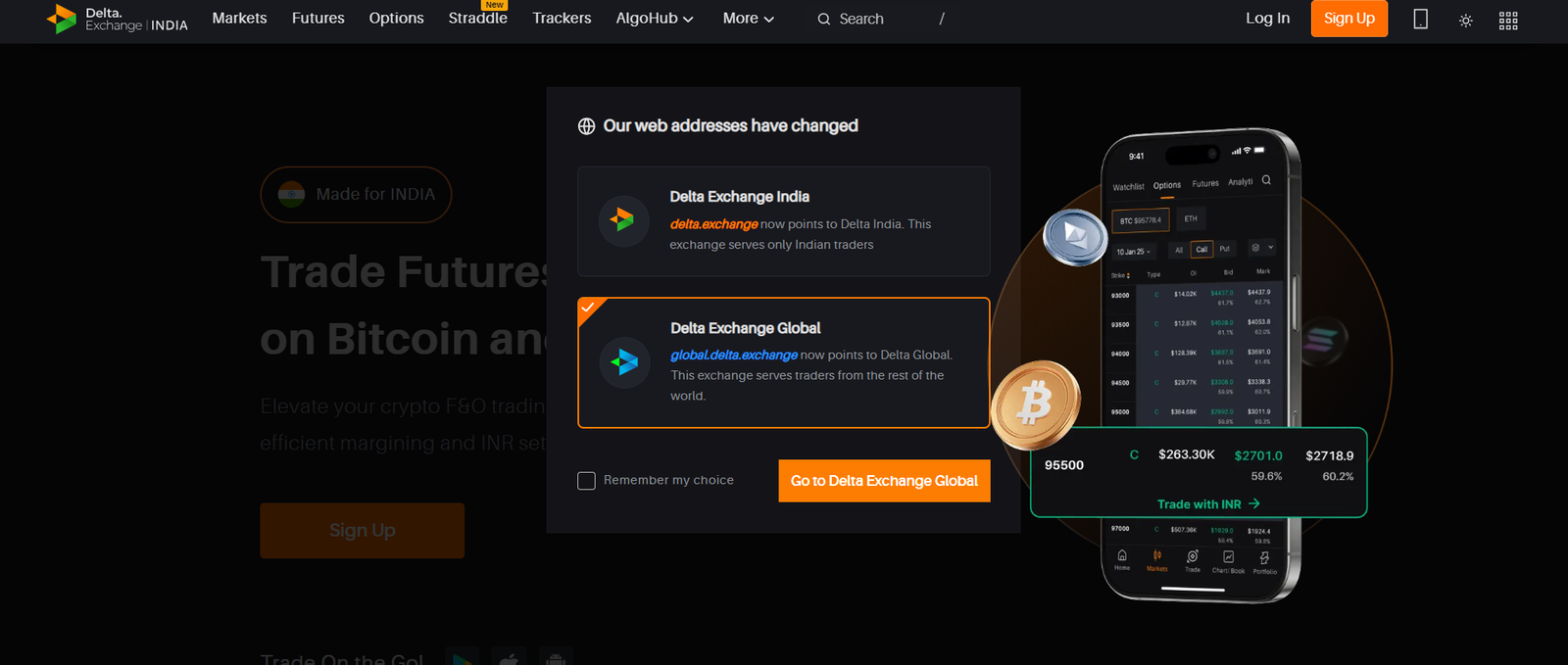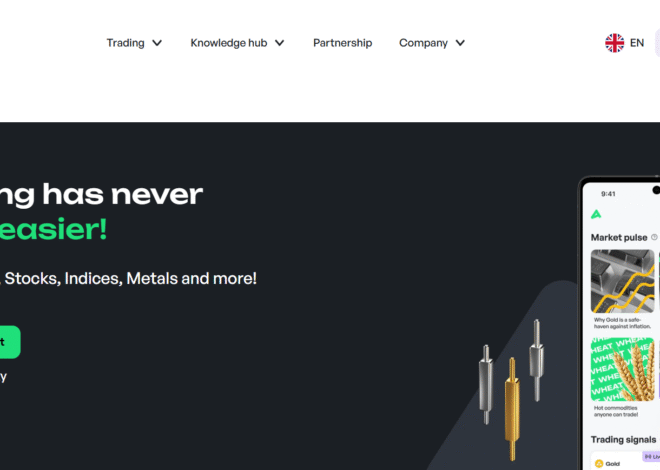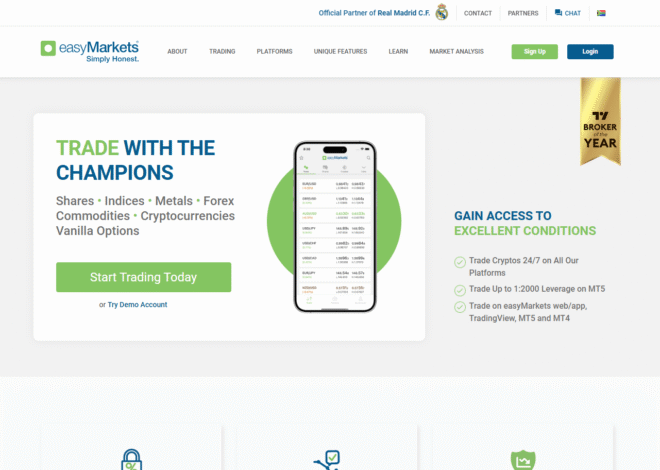
Delta Exchange EXPOSED: Critical Warning Before Investing
The digital asset trading landscape is fraught with both immense opportunity and significant peril. In recent years, platforms promising high returns and seamless trading experiences have proliferated, drawing in countless investors. However, beneath the glossy exterior of many such platforms lies a web of deception, regulatory non-compliance, and devastating financial losses for unsuspecting users. Our investigative team has turned its spotlight on Delta Exchange, a platform that has increasingly become the subject of severe scrutiny and widespread user complaints. This comprehensive report aims to dissect the alarming red flags associated with Delta Exchange, providing a crucial warning to anyone considering entrusting their funds to this entity.
From persistent withdrawal issues to a concerning lack of regulatory oversight and a growing chorus of disgruntled clients, the evidence suggests that Delta Exchange operates in a manner highly detrimental to investor interests. This article will delve into the regulatory landscape, analyze the patterns of user complaints, expose potentially deceptive marketing tactics, and highlight the critical dangers associated with unregulated and dubious trading platforms. If you are currently using or contemplating using Delta Exchange, this critical investigation could save you from significant financial hardship.
Regulatory Scrutiny: Unlicensed Operations and Compliance Failures
One of the most foundational pillars of trust in any financial institution is its adherence to regulatory standards. Licensing by reputable financial authorities provides a layer of oversight, ensuring fair practices, investor protection, and operational transparency. Unfortunately, when it comes to Delta Exchange, this crucial pillar appears to be conspicuously absent, raising immediate and severe concerns about its legitimacy and operational integrity.
Lack of Official Licensing and Oversight
A thorough examination of Delta Exchange‘s operational framework reveals a troubling lack of proper licensing from recognized financial regulatory bodies in major jurisdictions. Legitimate brokers and trading platforms are typically registered with authorities such as the Financial Conduct Authority (FCA) in the UK, the Australian Securities and Investments Commission (ASIC), the Cyprus Securities and Exchange Commission (CySEC), or the U.S. Securities and Exchange Commission (SEC). These registrations are not mere formalities; they are critical safeguards designed to protect consumers from fraud, market manipulation, and unethical business practices.
Our investigation found no credible evidence of Delta Exchange holding the necessary licenses to offer complex financial products, such as derivatives or margin trading, to a global audience. This absence of regulation means that Delta Exchange operates outside the legal frameworks designed to protect investors. There are no clear mechanisms for dispute resolution, no mandatory capital adequacy requirements, and no independent audits to ensure the security of client funds. This lack of oversight transforms Delta Exchange from a potentially risky investment into a highly dangerous venture, where client funds are exposed to immense, unmitigated risks.
Warnings from International Regulators
The lack of official licensing has not gone unnoticed by international financial watchdogs. While specific public warnings against Delta Exchange can sometimes be difficult to pinpoint due to the dynamic nature of offshore entities and their changing aliases, the general trend for unregulated platforms is clear: they often attract the attention of regulators who issue cautionary statements. These warnings typically highlight that the entity is operating without authorization, meaning it is not permitted to provide financial services in their respective jurisdictions.
When a platform like Delta Exchange operates in this regulatory grey area, it often signals a deliberate attempt to evade the stringent compliance requirements that protect investors. This evasion allows them to offer highly leveraged products or engage in practices that would be prohibited in regulated environments. Investors should view any platform operating without clear, verifiable regulatory approval as an extreme risk. A quick check on regulatory registers is a fundamental step for any prudent investor. For instance, the FCA maintains a register of firms it authorizes, and an absence from such a list for a firm offering services in that region is a significant red flag. You can check legitimate firms on the FCA Register.
The Illusion of Security: Unregulated Markets
Many users are lured into platforms like Delta Exchange by promises of high liquidity, advanced trading tools, and robust security measures. However, without regulatory backing, these claims often amount to nothing more than an illusion. The security of funds on an unregulated platform is entirely at the discretion of the platform operators. There is no independent body ensuring segregation of client funds from operational funds, no compensation schemes in case of insolvency, and no legal recourse if the platform decides to freeze accounts or disappear. The perceived security is merely a facade, and the underlying reality is one of extreme vulnerability for investor capital.
A Flood of Complaints: Analyzing User Experiences with Delta Exchange
Beyond the regulatory concerns, the most damning evidence against Delta Exchange comes directly from its users. A deep dive into online forums, consumer review sites, and social media platforms reveals a disturbing pattern of widespread and severe complaints. These grievances paint a consistent picture of a platform that prioritizes its own interests over those of its clients, often leading to significant financial losses and immense frustration.
Persistent Withdrawal Problems and Frozen Accounts
The single most prevalent and alarming complaint against Delta Exchange revolves around withdrawal issues. Numerous users report significant delays, outright refusal, or arbitrary blocking of withdrawal requests. Many clients describe a scenario where, after depositing funds and potentially achieving some trading success, their attempts to withdraw profits or even initial capital are met with a brick wall.
Common tactics reported include:
- Endless Verification: Users are subjected to repeated and seemingly endless requests for additional documentation, even after initial KYC (Know Your Customer) procedures have been completed. This tactic is often used to indefinitely postpone withdrawals.
- Technical “Glitches”: Claims of system errors, server maintenance, or “technical issues” that prevent or delay withdrawals for extended periods, only for these issues to mysteriously resolve once the user gives up or the funds are otherwise inaccessible.
- Unjustified Account Freezes: Accounts are arbitrarily frozen or suspended without clear explanation, often coinciding with a withdrawal request. Users are left in the dark, unable to access their funds or trading history.
- Minimum Withdrawal Thresholds: Suddenly imposed or increased minimum withdrawal amounts that make it impossible for users with smaller balances to retrieve their funds.
These are not isolated incidents; they are systemic issues that point towards a deliberate strategy to prevent users from accessing their own money. This is a classic hallmark of scam operations, designed to retain client funds within the platform.
Unresponsive Customer Support: A Barrier to Resolution
Compounding the frustration of withdrawal problems is the consistent failure of Delta Exchange‘s customer support. Users report that attempts to contact support via email, live chat, or other channels are often met with silence, generic templated responses, or outright dismissiveness. When responses are received, they frequently fail to address the core issue, offering vague explanations or simply reiterating policies that contradict previous agreements.
This lack of effective customer support is a critical red flag. A legitimate financial service provider understands the importance of clear, timely, and helpful communication, especially when clients are dealing with issues related to their funds. The inability or unwillingness of Delta Exchange to provide meaningful support indicates a severe disregard for client welfare and suggests that the platform is not equipped or intended to resolve user issues fairly.
Allegations of Price Manipulation and Unfair Trading Practices
Beyond withdrawal and support issues, a subset of complaints details suspicions of unfair trading practices and even price manipulation. Users have reported instances where:
- Sudden Price Spikes/Dips: Unexplained, rapid price movements that liquidate positions, especially during periods of high volatility or when a user has a profitable position.
- Execution Delays: Significant latency in order execution, causing users to miss entry or exit points, often resulting in losses.
- Stop-Loss Hunting: Orders appearing to be triggered at prices not genuinely reflected in broader market data, suggesting that the platform is targeting stop-loss levels.
While proving price manipulation on an individual basis can be challenging, the consistency of these allegations across multiple users on an unregulated platform like Delta Exchange warrants extreme caution. Without independent oversight, the platform has full control over its internal pricing and execution, leaving ample room for abusive practices that benefit the house at the expense of the trader.
Deceptive Marketing and Misleading Promises
Like many entities operating on the fringes of financial regulation, Delta Exchange employs aggressive and often misleading marketing tactics to attract new users. These strategies are designed to create an illusion of legitimacy, profitability, and reliability, drawing in unsuspecting individuals with promises that rarely materialize.
High-Pressure Sales Tactics and Unrealistic Returns
Our investigation found evidence suggesting that Delta Exchange or its affiliates use high-pressure sales tactics. This can include unsolicited calls, emails, or messages from “account managers” or “financial advisors” pushing users to deposit larger sums, invest in specific “guaranteed” trades, or leverage their positions significantly. These tactics often prey on individuals’ desires for quick wealth, promising unrealistic returns that are simply not sustainable or achievable in legitimate markets.
The narrative often involves portraying market volatility as an exclusive opportunity that only Delta Exchange can help you exploit, urging immediate action before the “opportunity” is lost. Such urgency is a classic psychological manipulation used by fraudulent schemes to prevent potential investors from conducting proper due diligence.
Fabricated Testimonials and Influencer Endorsements
To bolster their credibility, platforms like Delta Exchange often resort to using fabricated testimonials or engaging unverified “influencers” to promote their services. These testimonials typically feature glowing reviews of easy profits and seamless withdrawals, directly contradicting the vast majority of legitimate user feedback. These are often stock photos paired with generic praise, designed to create a false sense of trust.
Similarly, some platforms may leverage social media personalities or “crypto influencers” who may not disclose their affiliation or the compensation they receive for promoting Delta Exchange. These endorsements, while appearing organic, can be highly deceptive, leading followers into a potentially dangerous investment without proper disclosure of risks or conflicts of interest. Always question the authenticity of testimonials and verify the credentials of anyone recommending a financial platform.
The “Too Good to Be True” Syndrome: Spotting the Lies
The core of deceptive marketing lies in promises that seem “too good to be true.” If a platform guarantees exceptionally high returns with little to no risk, or if it portrays complex financial trading as effortlessly profitable, it should immediately trigger a red flag. Legitimate trading involves inherent risks, and no reputable broker can guarantee profits. The financial markets are volatile, and capital loss is always a possibility. Delta Exchange’s marketing, by promising easy success, exploits the hopes of new investors while concealing the true dangers. Learn more about how to identify these warning signs by reading our guide on How to Spot a Trading Scam.
The Peril of Unregulated Platforms: Why Delta Exchange is a High-Risk Bet
Investing in an unregulated platform like Delta Exchange is akin to playing a game where the rules are constantly changing, and the house always wins. The absence of regulatory oversight creates a vacuum where investor protection is non-existent, and the platform operators are free to act with impunity.
No Investor Protection: Your Funds Are Vulnerable
In regulated financial environments, investor protection schemes are in place to safeguard client funds up to a certain limit in the event of a broker’s insolvency or misconduct. For example, the Financial Services Compensation Scheme (FSCS) in the UK provides protection for eligible claims against authorized financial firms. With Delta Exchange, no such protections exist. If the platform goes bankrupt, disappears, or simply decides to withhold your funds, you have virtually no legal recourse to recover your investment. Your capital is entirely at the mercy of the platform operators.
Jurisdictional Ambiguity: Chasing a Ghost
Unregulated platforms often register in obscure offshore jurisdictions known for lax financial regulations. This jurisdictional ambiguity makes it incredibly difficult for individual investors to pursue legal action. Identifying the true ownership, locating physical addresses, and navigating complex international legal systems is a monumental, often impossible, task for a retail investor. Even if you were to win a legal judgment, enforcing it against an entity with no tangible presence in your jurisdiction is another hurdle altogether. Essentially, when dealing with Delta Exchange, you could be chasing a ghost.
The Exit Scam Potential: When Platforms Vanish
The ultimate risk associated with unregulated platforms is the “exit scam.” This is a scenario where a platform, after accumulating a significant amount of client funds, suddenly ceases operations, disappears from the internet, and takes all client assets with it. There are numerous historical precedents for such events in the crypto and online trading space. The patterns observed with Delta Exchange—persistent withdrawal issues, unresponsive support, and a lack of regulatory transparency—are classic precursors to an exit scam. Investors should be acutely aware that their funds could vanish overnight with no explanation or possibility of recovery.
Withdrawal Problems: The Ultimate Red Flag for Delta Exchange Users
While touched upon earlier, the severity and consistency of withdrawal issues at Delta Exchange warrant a dedicated focus as this is often the final and most conclusive indicator of a fraudulent operation. When a financial platform prevents you from accessing your own money, it transitions from being a risky investment to a potential scam.
Excuses, Delays, and the Runaround
Users of Delta Exchange frequently report a litany of excuses when attempting to withdraw funds. These include:
- “Your account needs further verification.”
- “We are experiencing technical difficulties.”
- “Your withdrawal is pending review.”
- “You need to make more trades before withdrawal.”
- “There’s an issue with your bank/wallet.”
These excuses, often vague and non-specific, are designed to buy time and frustrate the user into giving up. The process becomes an endless loop of requests for documents, waiting periods, and different support agents providing conflicting information. This “runaround” is a deliberate tactic to delay payouts indefinitely.
Unjustified Fees and Hidden Charges on Withdrawals
Another tactic reported by users of Delta Exchange is the imposition of sudden, high, and often undisclosed fees on withdrawals. These fees can sometimes be so exorbitant that they significantly diminish the amount a user can retrieve, or even make smaller withdrawals entirely uneconomical. Some platforms even demand a “tax” or “commission” payment upfront before processing a withdrawal, a practice entirely outside of legitimate financial operations. These are often additional attempts to extract more money from victims before ultimately denying the withdrawal anyway.
What to Do When Delta Exchange Blocks Your Funds
If you find your funds blocked by Delta Exchange or are experiencing persistent withdrawal issues, immediate action is crucial:
- Document Everything: Keep detailed records of all communications (emails, chat logs, screenshots of trades, deposits, withdrawal requests, and rejection messages).
- Cease Further Deposits: Absolutely stop depositing any more money into the platform, regardless of any promises or threats.
- Attempt Small Withdrawals: Continue to try withdrawing small amounts, as sometimes these are processed to maintain an appearance of legitimacy.
- Contact Your Bank/Payment Provider: If you deposited via bank transfer or credit card, contact your bank or card issuer immediately to inquire about chargeback options. Time limits apply, so act quickly.
- Report to Authorities: File a complaint with financial regulators in your country and any international consumer protection agencies. Provide them with all documented evidence.
- Seek Legal Advice: For significant losses, consider consulting with a lawyer specializing in financial fraud.
Protecting Yourself: Steps to Take Against Predatory Brokers
The case of Delta Exchange serves as a stark reminder of the dangers lurking in unregulated online trading. Protecting your financial future requires diligence, skepticism, and a commitment to thorough due diligence.
How to Verify a Broker’s Regulation
Before depositing any funds with an online broker or trading platform, always verify their regulatory status.
- Check Regulatory Registers: Visit the official websites of financial regulators in major jurisdictions (e.g., FCA, ASIC, CySEC, FINRA, SEC). Search for the broker’s name and its license number.
- Cross-Reference Information: Ensure the details on the regulator’s website (company name, address, license number) exactly match the information provided by the broker. Be wary of subtle differences or clone firms.
- Read Reviews, But Be Critical: Look for independent reviews on reputable consumer protection sites, but also be aware of fake positive reviews. Prioritize complaints about withdrawals and regulatory status.
- Understand Jurisdiction: Be aware of where the broker is regulated and what protections that jurisdiction offers. A broker regulated in a small, obscure island nation may offer minimal investor protection.
Documenting Your Interactions and Evidence Collection
In the event of a dispute or suspected fraud, having a comprehensive record of your interactions is invaluable.
- Screenshot Everything: Capture screenshots of your account balance, trade history, deposit and withdrawal requests, and any error messages.
- Save All Communications: Keep copies of all emails, chat logs, and any other correspondence with the platform’s support or account managers.
- Record Phone Calls: If permitted by law in your jurisdiction, record any phone conversations you have with the broker.
- Maintain Transaction Records: Keep bank statements or cryptocurrency transaction IDs for all deposits and withdrawals.
Reporting Financial Fraud: Where to Turn
If you believe you have been scammed by Delta Exchange or any other financial platform, reporting the incident is crucial, not only for your potential recovery but also to help prevent others from falling victim.
- Local Financial Regulators: Report to your country’s financial regulatory authority.
- Consumer Protection Agencies: Organizations like the Federal Trade Commission (FTC) in the U.S. or local consumer watchdog groups.
- Law Enforcement: For significant fraud, file a police report.
- International Fraud Networks: Organizations like eConsumer.gov can help report cross-border scams.
Your proactive reporting helps authorities build cases against fraudulent entities and issue public warnings, contributing to a safer financial environment for everyone.
Conclusion: Avoid Delta Exchange at All Costs
Our exhaustive investigation into Delta Exchange has uncovered a disturbing array of red flags that collectively paint a picture of a highly precarious, potentially fraudulent operation. The glaring absence of credible regulatory oversight, coupled with a relentless torrent of user complaints detailing severe withdrawal issues, unresponsive customer support, and suspicions of unfair trading practices, leaves no room for doubt. Delta Exchange exhibits all the classic characteristics of a high-risk, unregulated entity that prioritizes its own gains over the financial security of its clients.
The promises of easy profits and advanced trading tools are overshadowed by the very real threat of losing your entire investment, with little to no recourse for recovery. This is not a platform where your funds are safe, nor is it one that operates with integrity or transparency. We issue this urgent and unequivocal warning: do not invest with Delta Exchange. If you are already a client, take immediate steps to withdraw any accessible funds and prepare to document and report your experiences to relevant authorities. Protecting your financial future starts with choosing regulated, transparent, and trustworthy platforms. Delta Exchange demonstrably fails on all these critical fronts.
If you have been affected by Delta Exchange or similar platforms, we urge you to report your experience to your local financial regulator and consumer protection agencies. Your voice is vital in the fight against financial misconduct.
External Links Reference Table
| Anchor Text | URL |
|---|---|
| FCA Register | https://www.fca.org.uk/register |
| ASIC – Australian Securities & Investments Commission | https://asic.gov.au/ |
| FTC – Federal Trade Commission | https://www.consumer.ftc.gov/ |


